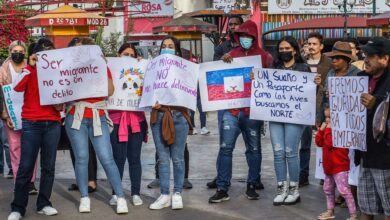Castillo awaiting imminent announcement of presidential election win

By Fernando Gimeno
Lima, Jun 19 (EFE).- The official proclamation of Pedro Castillo as Peru’s president-elect could come at any time after the electoral boards took a month-and-a-half to process and reject more than 1,000 appeals and challenges by rightist candidate Keiko Fujimori, who is persisting in complaining – without evidence – that electoral “fraud” denied her the presidency.
Just a week before the scheduled inauguration day, the National Elections Board (JNE) on Monday declared null and void the latest five appeals presented by Fuerza Popular, Fujimori’s party, that up to now had hindered authorities from certifying the election results.
JNE sources confirmed as much to EFE, and now election authorities have a clear path to certifying the results submitted by each of the 60 special boards comprising Peru’s electoral system, a move that is supposed to happen within the coming hours.
In its ruling, the results of the vote count conducted by the National Electoral Process Office (ONPE) will be validated, whereby Castillo obtained 50.12 percent of the valid votes, thus beating Fujimori by a narrow margin of 44,000 votes.
The slight advantage was used by the Peruvian right to emphasize the polarization of the election campaign and ratchet up nationwide tension to an unprecedented level by refusing to acknowledge the results, even going so far as to exhort the armed forces to refuse to obey Castillo, a situation that in practice would constitute a coup d’etat.
During this period there have been demonstrations, particularly in the capital, that have occasionally turned violent like the one last weekend where a group of Fujimori supporters attempted to march on the Government Palace in Lima.
The announcement of the vote count on the day after the election showed that Fujimori – the daughter of former President Alberto Fujimori, who is serving a 30-plus-year sentence for money laundering – had lost her third bid for the presidency, and since then she has been claiming that “systematic fraud” had prevented her from winning the balloting.
In a strategy very similar to the one used by former US President Donald Trump after the 2020 presidential vote in the United States, Fujimori tried to nullify some 200,000 votes in Andean, rural and poor precincts where Castillo had won an overwhelming majority, Fujimori claimed that the signatures provided by the voters were faked, although she has never been able to confirm that.
In fact, many of the people whose signatures were challenged have come forward publicly to deny Fujimori’s claims and to reaffirm that the signatures provided at the precincts prior to receiving their ballots were actually theirs.
At the same time, the legitimacy of the Peruvian elections has been endorsed by the Organization of American States and the European Union, as well as by the US and Canadian governments, along with other countries and multilateral institutions.
Meanwhile, and despite having no official proclamation of his win, Castillo immediately began considering himself to be the winner and acting as president-elect by meeting with assorted political and business leaders, along with diplomatic delegations of countries like China, although he has not made any public statements to reporters, preferring to hermetically seal himself off from any such interviews aside from a brief statement to the foreign press during which he took no questions.
Given the lack of an official proclamation of Castillo’s win, however, the administration headed by interim President Francisco Sagasti has not been able to start the transition process, focused as it has been on accelerating the anti-Covid vaccination process and guaranteeing the supply of vaccines through the end of the year.
This means that Castillo and his team will have just a week to take hold of the reins of power before the July 28 inauguration, which occurs on the country’s 200th anniversary of its independence.
So far, Castillo – a former professor – has not suggested who he will appoint to his cabinet, saying on the social networks that recent rumors about who will be tapped “are … speculation. After the JNE proclamation we will make the official announcements.”
Among the names being heard as candidates for ministerial posts are economist Pedro Francke and Dr. Hernando Cevallos for the economy and health portfolios, respectively, but the main unknown at this point is who will be selected for prime minister, although former lawmaker Roger Najar’s name emerged on Sunday as a possible candidate for that post.





